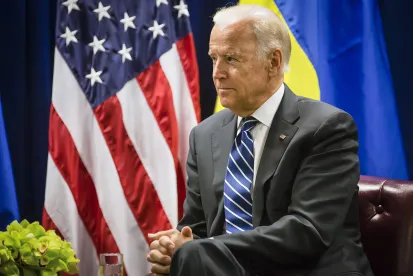President Biden issued his first veto today. Biden’s veto returns to Congress a joint resolution that attempts to nullify a recent rule from the Department of Labor regarding consideration of Environmental, Social, and Governance (ESG) factors when investing in retirement accounts. This rule went into effect on January 30, 2023, and allows for retirement plan fiduciaries to consider ESG factors when selecting investments and exercising shareholder rights. Some have said ESG investing is controversial because it allows for retirement plan fiduciaries to consider factors such as climate change and equity instead of focusing solely on maximizing financial returns; while others have argued that past measures prohibiting the consideration of ESG factors are equally problematic.
Congressional disapproval of Executive Branch rulemakings are provided for in the Congressional Review Act. The Act allows for Congress to repeal final rules from Executive Branch agencies within 60 legislative days of promulgation via a simple majority vote in both chambers. Under the Act, if Congress is able to successfully vote down such a rule, that rule will have “no force or effect” and “[a] new rule that is substantially the same” may not be issued unless specifically authorized by a subsequent law.
The US House of Representatives passed a joint resolution disapproving of the aforementioned Labor Department rule by a vote of 216-204 on February 28, 2023. One House Democrat joined all House Republicans in support of the measure. The next day, the US Senate approved the House’s joint resolution by a margin of 50-46, with two Senate Democrats joining 48 Senate Republicans in support. Four Senators did not vote on the approval of the joint resolution.
Now that President Biden has vetoed Congress’ joint resolution, it may take up the measure again. If Congress attempts to override the President’s veto, it will require passage of the joint resolution by a two-thirds majority in both chambers. Based on the joint resolution’s original vote count, a veto-proof Congressional majority is a stretch. Therefore the Labor Department’s ESG investing rule will likely remain in effect until a new Congress, Presidential administration, or litigation in Texas and Wisconsin provide otherwise.
Garrett Kral also contributed to this article.





 />i
/>i

